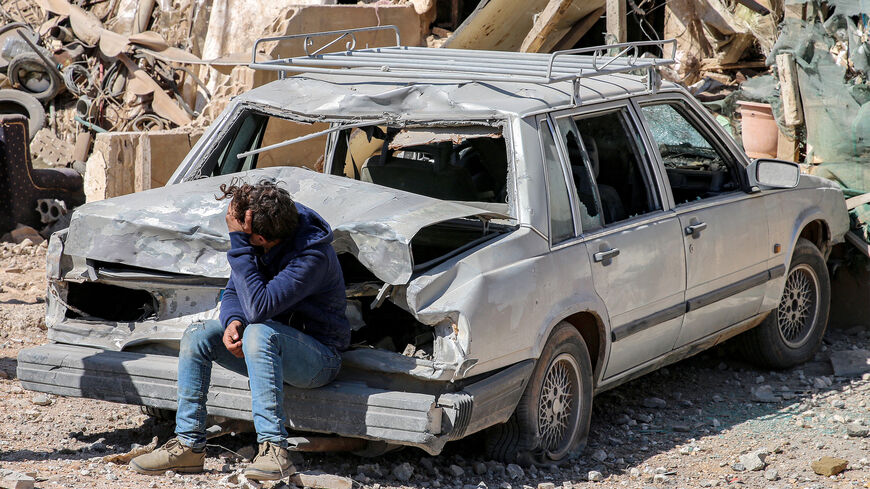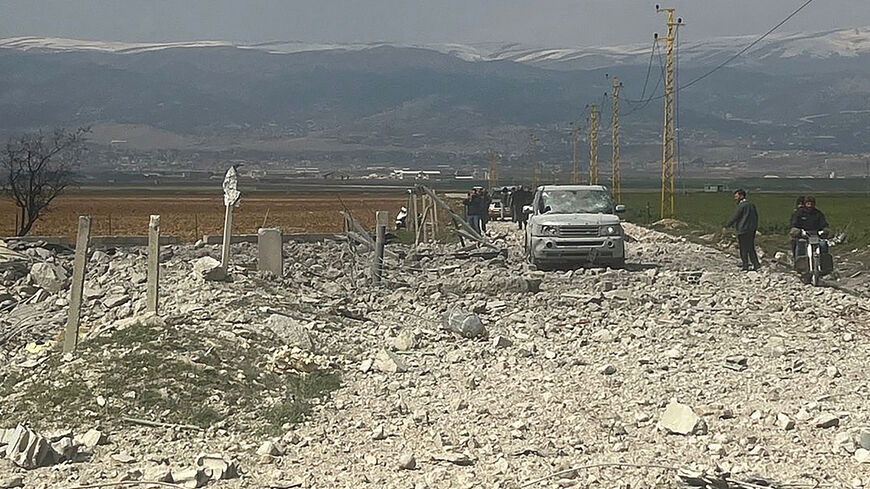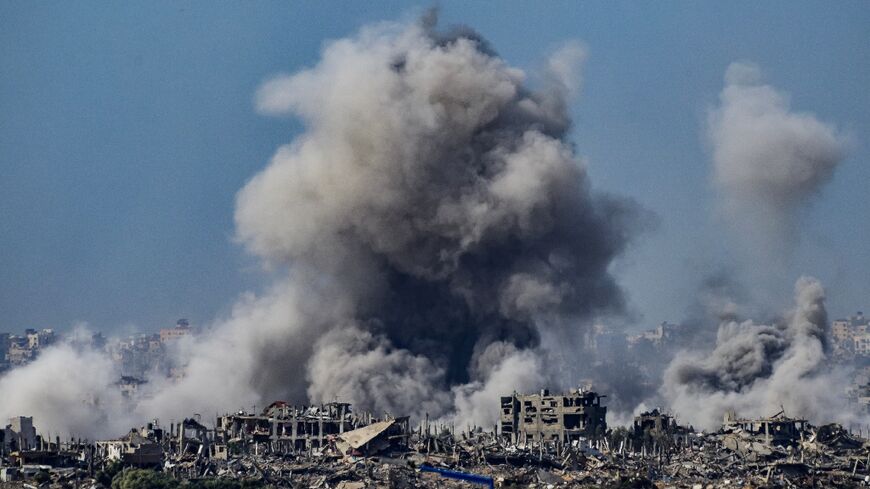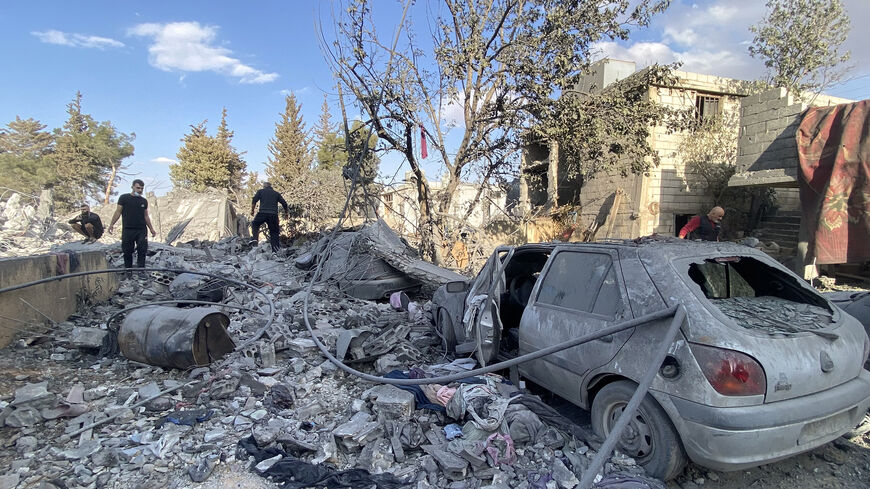Hamas official says group ready to disarm as US sees 'avenue' for deal
Hamas has declared its willingness to accept a five-year truce an disarm if a Palestinian state is established based on the 1967 borders.
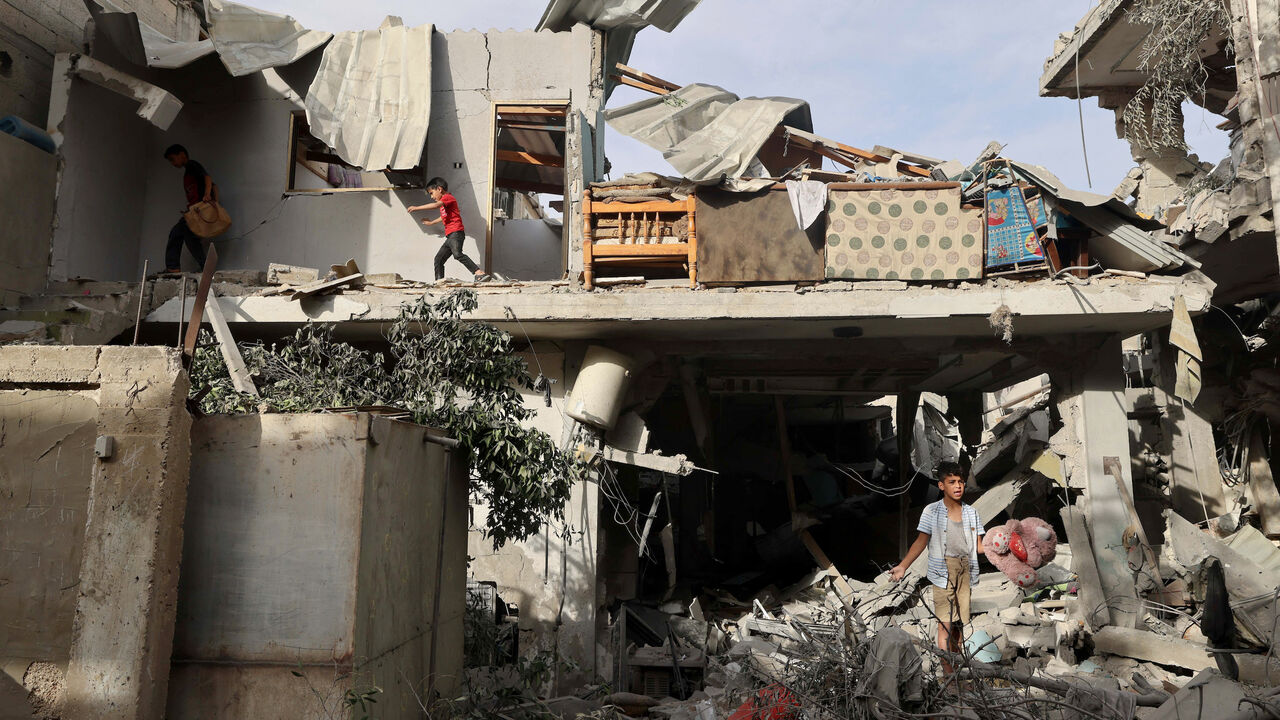
A Hamas official expressed on Wednesday the movement’s readiness to lay down its weapons and transition into a political party if an independent Palestinian state is established along the pre-1967 borders.
In an interview in Istanbul with the Associated Press published on Thursday, Khalil al-Hayya, a leading member of Hamas’ political bureau and deputy head of the movement in the Gaza Strip, said Hamas would accept “a fully sovereign Palestinian state in the West Bank and Gaza Strip and the return of Palestinian refugees in accordance with the international resolutions.”
If that happens, Hamas would disband its military wing, the Qatar-based Hamas official said.
Hayya, who has represented the movement in the indirect talks with Israel on a Gaza cease-fire and a hostage deal, added that Hamas was open to a truce in Gaza for five years or more.
Egypt, Qatar and the United States have been engaged in intense mediation talks to secure a deal that would end the hostilities in the Gaza Strip and see the release of the remaining hostages held by Hamas. But several hurdles remain. Hamas is pushing for a permanent cease-fire while Israel insists on continuing the war until all of Hamas is eradicated.
The war in Gaza, sparked by Hamas’ unprecedented cross-border assault Oct. 7, has killed more than 34,000 people and injured over 77,000 others, according to the Health Ministry in the enclave.
Hamas killed nearly 1,200 people during its Oct. 7 assault and took over 240 others hostage, 110 of which were released during a brief seven-day truce late last November.
Hayya’s remarks come a week after Turkish Foreign Minister Hakan Fidan said Hamas was willing to disarm once a Palestinian state based on the 1967 borders is established. Fidan made this statement during a press conference in Doha following his meeting with Hamas' political chief, Ismail Haniyeh, in the Qatari capital.
US sees 'avenue'
The comments came as a senior Biden administration official told reporters Thursday that Hamas’ leadership inside Gaza, including Yahya Sinwar, continues to reject the “very forward leaning” deal on the table. But since Hamas’ last response, there have been “signals” that the group is open to releasing women, elderly and wounded hostages in return for a temporary cease-fire.
“We do see some indications that there might be an avenue here,” the official said. “But I’m not totally confident because a lot of times we hear things from leaders of Hamas outside that do not reflect the Hamas leadership inside, which seems determined to simply sit underground holding hostages.
The United States and 17 other governments whose citizens are being held hostage by Hamas released a joint statement Thursday calling on the group to release them and agree to a deal.
“We emphasize that the deal on the table to release the hostages would bring an immediate and prolonged ceasefire in Gaza, that would facilitate a surge of additional necessary humanitarian assistance to be delivered throughout Gaza, and lead to the credible end of hostilities. Gazans would be able to return to their homes and their lands with preparations beforehand to ensure shelter and humanitarian provisions," the statement read.
The statement was released by the governments of the United States, Argentina, Austria, Brazil, Bulgaria, Canada, Colombia, Denmark, France, Germany, Hungary, Poland, Portugal, Romania, Serbia, Spain, Thailand and the United Kingdom.
Egypt and Qatar are leading the negotiations on such a deal.
On Wednesday the head of Egyptian intelligence, Kamel Abbas, presented to Israeli army chief Herzi Halevi and Shin Bet chief Ronen Bar a new proposal for the release of hostages and a cease-fire in Gaza, reported Israel's Ynet. The proposal includes suspending the IDF plan for entering Rafah, the release of the hostages in two or three phases and then a one-year cease-fire.
Escalation on Israel-Lebanon front
Meanwhile, fighting between Lebanese Hezbollah and Israel is escalating with both sides striking deeper inside their respective territories.
On Thursday, a suspected Israeli drone attack in eastern Lebanon on Thursday left one person injured.
The drone hit a fuel tanker truck near the village of Douris, in Lebanon’s northeastern district of Baalbek. The vehicle was damaged and the driver suffered injuries, according to the state-run National News Agency.
The Israeli military has yet to comment on the attack.
In recent weeks, Israeli warplanes have struck what Israel says are Hezbollah sites and weapons warehouses in Baalbek, a Hezbollah stronghold more than 100 kilometers (62 miles) from Lebanon's southern border with Israel.
Earlier on Tuesday, Hezbollah fired several drones at Israeli military bases north of Acre, north of Haifa, its deepest strike inside Israel since October.
The two parties have been exchanging cross-border fire since October in the wake of the Israel-Hamas war that began early that month.
On Thursday, the Israeli military said in a post on X that its fighter jets had overnight hit infrastructure belonging to Hezbollah in the Maroun al-Ras area of southern Lebanon as well as an observation point belonging to the group in Markaba, also in the south.
In a separate post on Wednesday, the Israeli military said it had launched several air raids against some 40 Hezbollah targets, including arms depots, in the vicinity of the southern Lebanese town of Aita al-Shaab.
Wednesday’s strikes came after Hezbollah fired a salvo of rockets toward Israel in the wake of an Israeli strike on Tuesday that hit a residential area in the southern town of Hanin, killing two civilians including an 11-year-old girl, according to the National News Agency.
In a statement following a visit to Israel's Northern Command on Wednesday, Israeli Defense Minister Yoav Gallant said Israeli forces have killed half of Hezbollah’s commanders in southern Lebanon. The movement has denied the assertion.
About 270 Hezbollah fighters are believed to have been killed since hostilities began to escalate in October, according to a Reuters tally. The fighting has also killed more than 70 civilians in Lebanon.
On the Israeli side, 11 soldiers and eight civilians have been killed, according to Israeli estimates.
Gallant added in his Wednesday statement that Israeli forces are now “carrying out offensive action” across southern Lebanon, raising fears of an all-out war.
Speaking at a press briefing on Wednesday, US Assistant Secretary of State for Near Eastern Affairs Barbara Leaf expressed concerns over “a very disturbing degree of volatility” on the Lebanon-Israel border.
“The potential for escalation is acute,” she warned, adding that Washington is committed to diplomatic efforts to de-escalate the situation.
Hezbollah previously said that the cross-border fire will stop once a cease-fire in Gaza is reached. In a televised speech back in February, the group’s secretary general, Hassan Nasrallah said, “When the attack on Gaza stops and there is a cease-fire, the fire will also stop in the south” of Lebanon.
Rina Bassist contributed to this report.

